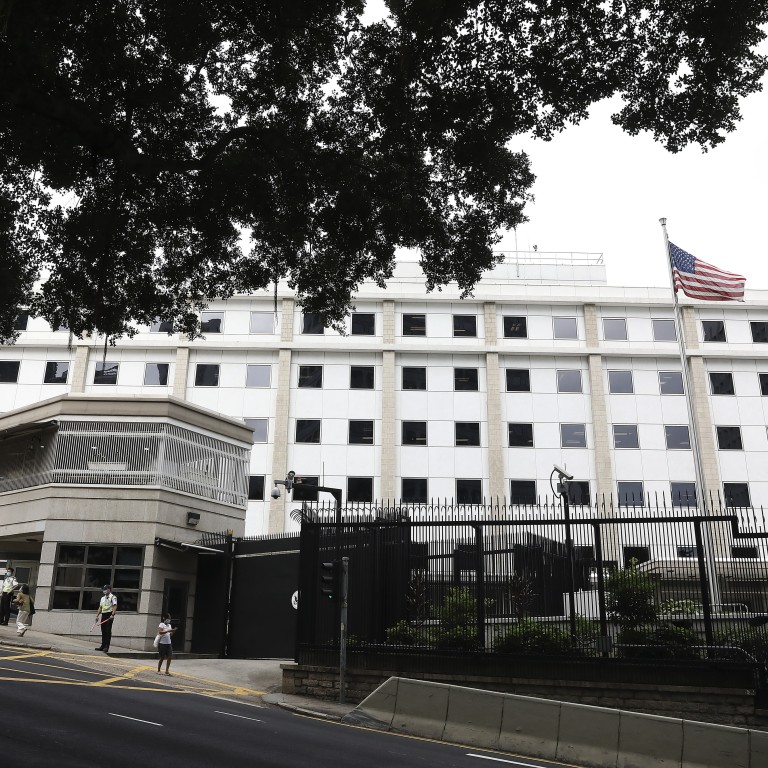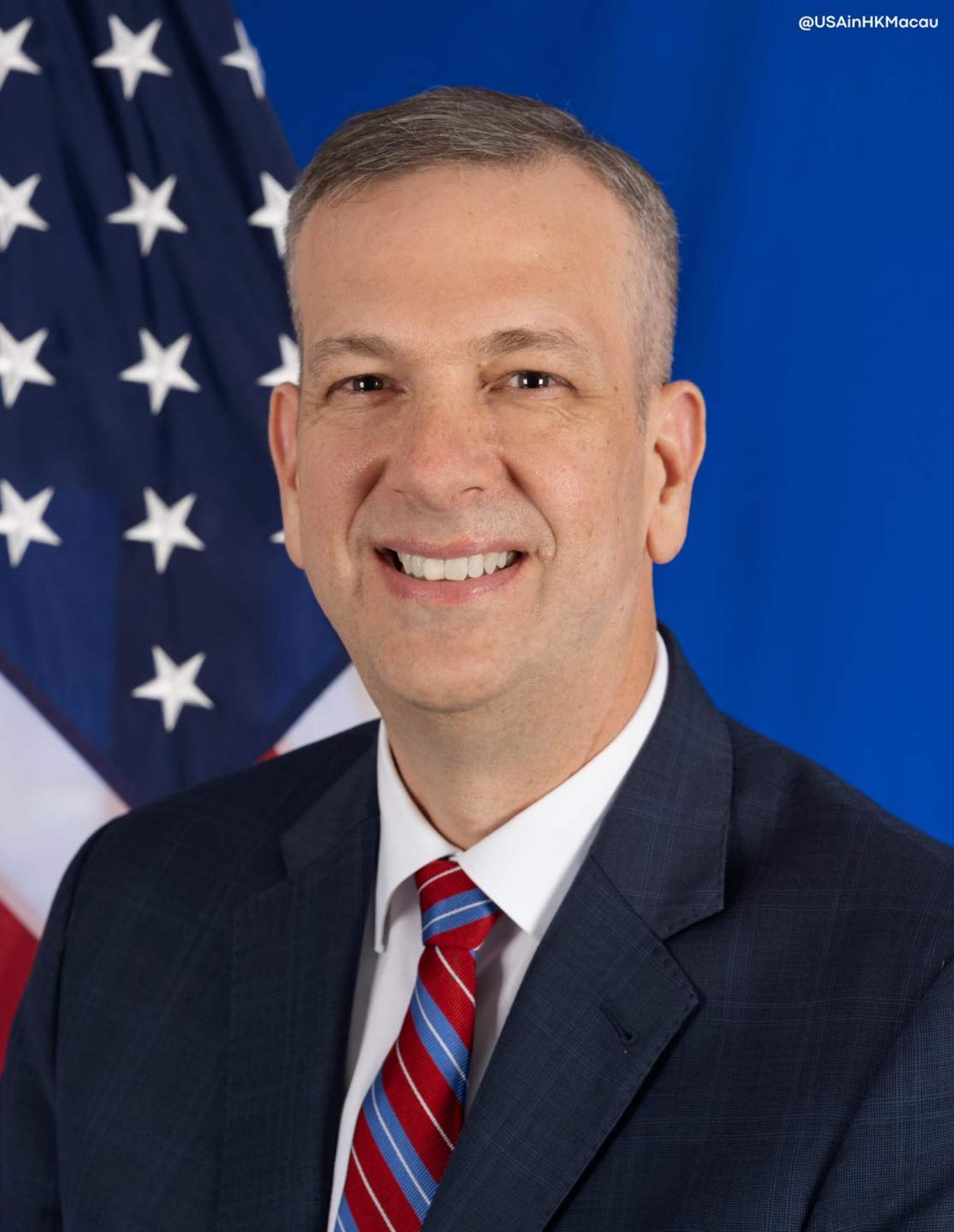
Hong Kong national security law: Beijing’s ‘3 red lines’ have ‘zero effect’ on my work, US envoy to city Gregory May says
- Gregory May, US consul general for Hong Kong and Macau, says in town hall his country will continue to voice concerns over ‘erosions’ to city’s autonomy
- He highlights Hong Kong’s importance as vital communications channel to mainland for diplomats amid tense ties
The United States’ top envoy in Hong Kong has declared that the “three red lines” laid down last month by Beijing have “zero effect” on his work, reiterating that the US will continue to voice concerns over what it sees as the “erosion” of the city’s autonomy.
The “three red lines” – defined as: not endangering China’s national security; not engaging in political infiltration in Hong Kong; and not slandering or damaging Hong Kong’s development prospect – were laid out by Liu Guangyuan, foreign ministry commissioner in Hong Kong, in his February meeting with the US consul general.

“The local office of the commissioner of the Ministry of Foreign Affairs said publicly that I’m under supposedly red lines where basically I’m not allowed to criticise, you know, Hong Kong or things that happened in Hong Kong, and that has zero effect on my work,” he said.
The US government would continue to voice its concerns over events related to the national security law and the erosion of the city’s high degree of autonomy, he reiterated.
Hong Kong tells US consulate general to stop ‘scaremongering’ over city’s future
On Wednesday, May, considered an experienced China hand, maintained that Hong Kong had an extremely important role in the larger US-China relationship because the city provided an important communication channel for American diplomats to understand developments on the mainland.
“Communication here in Hong Kong is still, despite all the recent changes, freer and more free-flowing than it is in mainland China,” May said.
“Hong Kong’s importance in this respect is actually increasing in that some of the best mainland experts, or experts on Chinese politics and economic developments, are here. And so, this is why we are very eager to maintain academic exchanges in addition to official communications with folks here.”

May noted he had been maintaining close contact with “everybody of all different kinds of political views”, including government officials and lawmakers.
The Post earlier reported that the top US diplomat no longer had to seek approval from the local office of the foreign ministry to meet city officials in government and education institutions from last November. Only a five-day notice is needed.
The previous requirement imposed in 2020 was deemed a tit-for-tat move after Washington’s decision to limit the movement of Chinese diplomats in the US. Pro-establishment politicians in the city had suggested they remained reluctant to meet the envoy in light of tense US-China ties.
May on Wednesday signalled that not all rules imposed in the past few years had been lifted.
Beijing restriction on US diplomatic talks with Hong Kong politicians eased
Before the pandemic and resulting border closure, US consulate staff based in Hong Kong used to travel to Macau regularly to provide citizen and visa services.
But the routine had not resumed despite this year’s border reopening, May said, as his country’s diplomats had encountered “bureaucratic obstacles” in relation to the foreign affairs ministry. He said the issues had been stalling US consulate staff’s ability to travel to Macau in a timely manner.
“We’re optimistic that we’re going to be able to work through them and I am looking forward to officially visiting Macau for the first time soon,” he said.
May was appointed to his current role last September, succeeding Hanscom Smith. He had previously served in US diplomatic outposts in Shenzhen, Beijing and Guangzhou, and worked as a reporter based in Taiwan before taking up diplomatic work.

